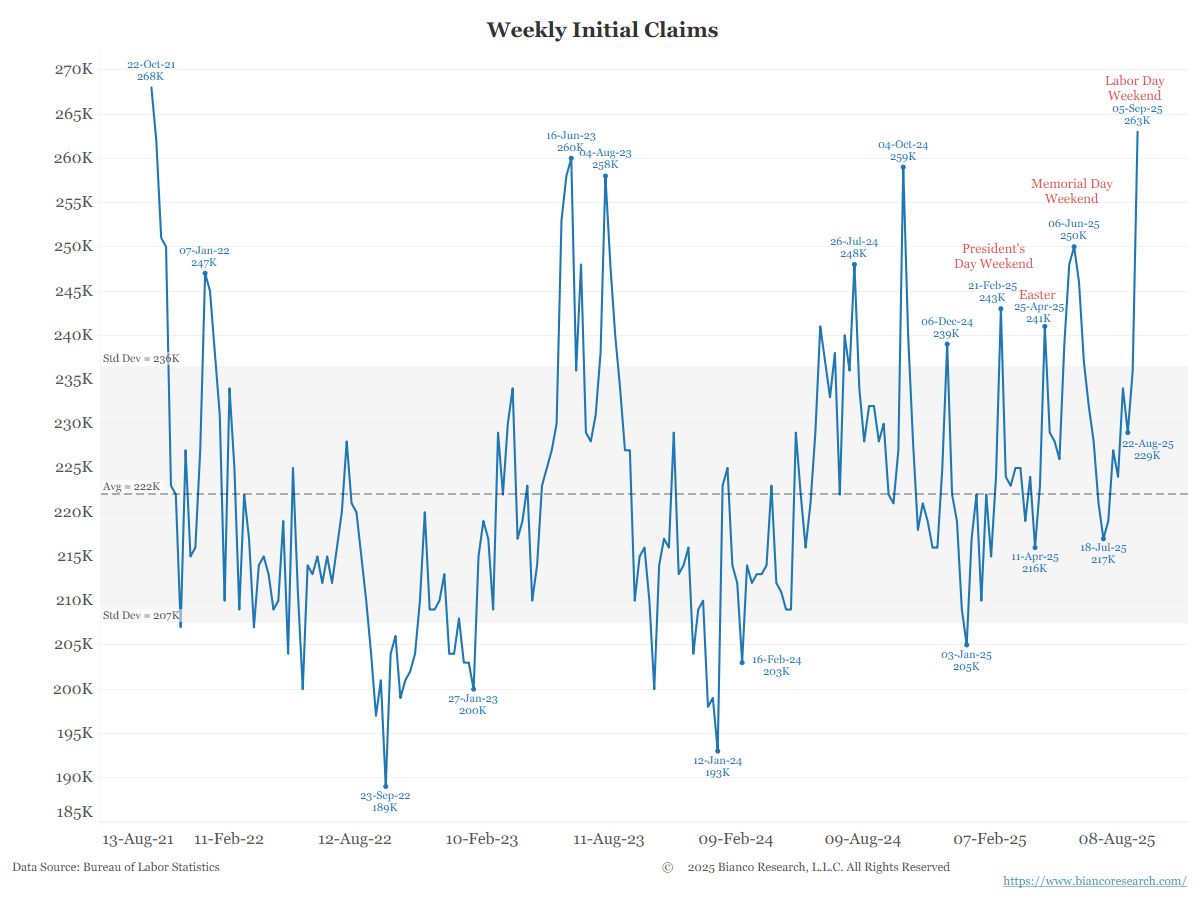Receive free Global Economy updates
We’ll send you a myFT Daily Digest email rounding up the latest Global Economy news every morning.
Last week the Federal Reserve revealed yet another financial conditions index.
By Alphaville’s count, this is roughly the 6000th gauge of how relaxed or restrictive financial conditions are. It’s not even the first (or second, or third) out of the Federal Reserve system. Even Norway has one these days. It’s like an AI strategy, but for economics: you need to have one, even if it’s just for show.
Financial conditions indices all tend to measure the same things, meaning they are inherently backward-looking and have limited-to-zero utility as indicators. The only practical use for FCIs seems to be to occasionally signal that Fed officials DO take financial conditions into consideration after 2008, they swear. As Dan Davies wrote in AV earlier this year:
Financial conditions indices, a wise economist once told me, are like dreams and assholes. Everyone has them, they’re not as unique as you’d think, and people are much more enthusiastic about studying their own than anyone else’s.
But this is a mainFed-designed (and implicitly blessed) FCI, while the others were invented by regional banks. So it could plausibly have implications for monetary policy. As Evercore ISI’s Krishna Guha writes, this is “likely to prove one of the most market-relevant staff papers in a long time”. In other words, we’re going to have to take a closer look at this asshole.
Here’s what it looks like:
So what is new and different with the Fed’s own FCI? Here’s what the authors (Andrea Ajello, Michele Cavallo, Giovanni Favara, William Peterman, John Schindler IV, and Nitish Sinha) have to say:
While existing FCIs typically measure whether financial conditions are tight or loose relative to their historical distributions, the new index assesses the extent to which financial conditions pose headwinds or tailwinds to economic activity. Another important difference of this new index, compared with other commonly used FCIs, is its explicit consideration of the lags through which changes in financial variables are estimated to affect future economic activity. In the models used to construct the FCI-G, past changes typically receive decreasing weights, reflecting the diminishing effects that changes in financial variables have on economic activity over time.
Goldman Sachs — which has been hot for FCIs ever since Bill Dudley was its economics supremo — says that the Fed’s gauge is similar to their own, with three notable differences:
First, the Fed’s FCI-G suggests that financial conditions affect growth with a longer lag than our FCI impulse by about one to two quarters, leading the Fed’s measure to imply a roughly 0.5pp larger drag on GDP growth than our FCI impulse over the next year. Our review of economic studies of the lags with which financial conditions affect growth suggests that most estimates of the lag are closer to the lag implied by our model.
Second, the FCI-G includes the Zillow monthly index of house prices and mortgage rates, which our FCI does not include. We choose to consider house prices and housing affordability separately from financial conditions in our consumption and investment forecasts, in part because house price indices are only released monthly and are subject to substantial revisions.
Third, while the Fed’s FCI-G implicitly assumes that financial conditions affect growth but not the other way around, our approach allows changes in market prices to affect growth and vice versa.
MainFed’s FCI also indicates that while conditions have eased a bit lately, they are much tighter than the Goldman Sachs, Bloomberg, Chicago Fed, Kansas City Fed and St Louis Fed indices show, and are now tighter than at any time since the global financial crisis.
Evercore ISI’s Guha highlights that lags between financial conditions and actual economic activity means that the current tightness will weigh on growth for some time. And that means the Fed won’t have to raise rates much higher, and that officials will be relaxed about the recent market rally, he argues:
Given these lags and the dominant weight that various short-term and in particular long-term interest rates have in the Fed’s concept of financial conditions, as long as these rates remain elevated, the Fed — within reason — will be relatively tolerant of stock market gains that have a relatively modest impact on the FCI-G index and the outlook for activity.
In other words, the Fed is less likely to oppose the stock market rally — unless it gets completely out of hand — than widely feared.
















